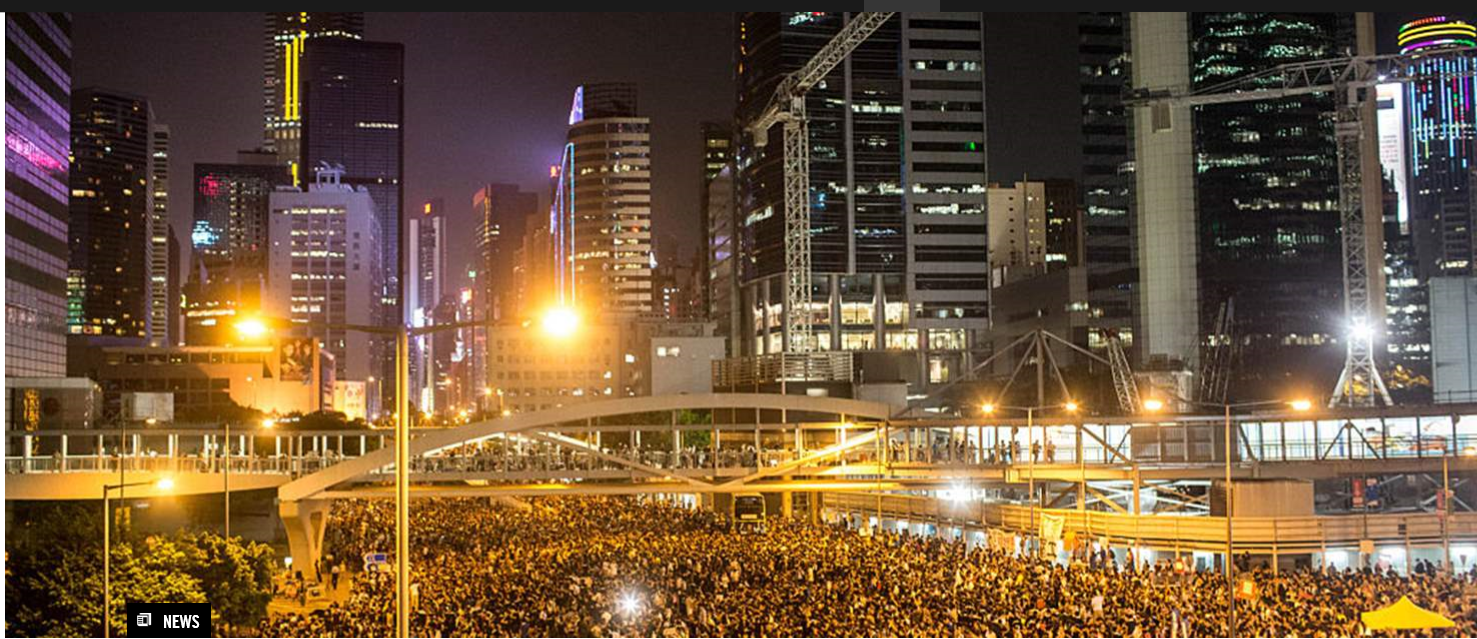Trial of nine Umbrella Movement leaders due to start on Monday
The Hong Kong government must drop the politically motivated prosecution of nine leaders of the 2014 pro-democracy Umbrella Movement protests, as it amounts to an attack on free speech and peaceful assembly, Amnesty International said ahead of the start of their trial on Monday.
Among the nine activists facing trial at West Kowloon Magistrates’ Courts are the co-founders of the “Occupy Central” campaign – legal scholar Professor Benny Tai Yiu-ting, sociologist Professor Chan Kin-man and retired pastor Reverend Chu Yiu-ming – who each face a maximum penalty of seven years’ imprisonment if convicted. Six other defendants in the case include student leaders, lawmakers and political party leaders.
“This prosecution is an act of retaliation aimed at silencing the pro-democracy movement. The charges against all nine activists must be dropped, as the government’s case is based solely on the legitimate exercise of the rights to free speech and peaceful protest,” said Man-kei Tam, Director of Amnesty International Hong Kong.
“The prosecutors are using deliberately vague and ambiguous charges that will have chilling consequences for freedom of expression and peaceful assembly in Hong Kong.”
In a briefing published today, Amnesty International outlines why the charges against the nine activists amount to an attack on human rights, and highlights the far-reaching consequences of prosecutions related to the Umbrella Movement protests.
The prosecution of the three “Occupy Central” leaders centres on the planning and implementation of a pro-democracy campaign, including non-violent direct action to block roads in the Central District of Hong Kong. The campaign, which called for the democratic election of the city’s head of government, became part of the large-scale pro-democracy Umbrella Movement protests carried out in an overwhelmingly peaceful manner over 79 days between September and December 2014.
The other six activists being prosecuted are student leaders Tommy Cheung Sau-yin and Eason Chung Yiu-wa, lawmakers Tanya Chan and Shiu Ka-chun, and political leaders Raphael Wong Ho-ming and Lee Wing-tat.
In an unusual move, prosecutors decided to base the charges against all nine individuals on the common law offence of “public nuisance”, which both makes the charges more ambiguous and carries harsher sentences compared to similar charges under statutory law.
Prosecutors are using press conferences, media interviews and public meetings in which the pro-democracy leaders discussed their non-violent civil disobedience campaign as key evidence.
Videos filmed by police of the nine’s peaceful participation in the first two days of the Umbrella Movement, including directing protesters to different streets outside the government headquarters and urging others through loudspeakers to join the protests also form central pillars of the prosecution’s case.
“If prosecutors are successful, there is a real danger that more and more people will face charges for peaceful activism. The authorities appear intent on trying to silence any debate about sensitive issues in Hong Kong, especially those relating to democracy and autonomy,” said Man-kei Tam.
Background
The prosecution is the latest against Umbrella Movement protesters by the Hong Kong government, following the conviction of three student leaders in 2017. More than four years on from the start of the Movement, hundreds of protestors remain in legal limbo, uncertain if the police will proceed with charges against them.
The trial comes amid increasing alarm over the erosion of the rights to freedom of expression, association and peaceful assembly in Hong Kong. Last Thursday, the Financial Times’ Asia news editor Victor Mallet was refused entry to Hong Kong. The denial came just a month after the Hong Kong authorities refused to renew his work visa, in what appeared an act of retaliation, after Mallet hosted a talk with a pro-independence activist at the local Foreign Correspondents’ Club in August.
Earlier this month, dissident Chinese artist Badiucao cancelled his first show in Hong Kong citing security threats from Chinese authorities.
For further information please contact:
Elizabeth Berton-Hunter, Media Relations 416-363-9933 ext 332 bberton-hunter@amnesty.ca






















